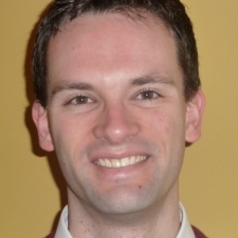
Jesse Rhodes
Associate Professor, Political Science, UMass Amherst
My major areas of scholarly interest are social policy, voting rights policy, political parties, and the American presidency. I have published a book on the development of federal education policy - An Education in Politics: The Origin and Development of No Child Left Behind - with Cornell University Press, and am currently writing a book on the development of the Voting Rights Act since 1965. I have also published research on the politics of presidential rhetoric, the evolving relationship between the president and the parties, and the effects of state education reforms on parental attitudes and behavior.
Less ![]()

Jesse Tse
PhD Candidate at Melbourne School of Psychological Sciences, The University of Melbourne
Jesse is a Research Assistant and PhD Candidate at Melbourne School of Psychological Sciences.
Less ![]()

Jesse Vermaire
Associate Professor, Institute of Environmental Science, Carleton University
Dr. Jesse Vermaire is an Associate Professor with the Institute of Environmental Science and cross-appointed with the Department of Geography and Environmental Studies at Carleton University. His research focuses on the long-term impacts of human activity on our freshwater resources including microplastic pollution of freshwater. His research is supported by grants from NSERC (Discovery, Engage, RTI, Strategic Project) and other federal and provincial programs such as (CFI, ORF, Northern Contaminants Program).
Less ![]()

Jesse J. Fleay
Republic Constitutional Scholar, Federalist, Co-Author of the Uluru Statement, University of Notre Dame Australia
Jesse J. Fleay is a leading Noongar constitutional academic, whose PhD at the University of Notre Dame explores the depth and meaning behind the Uluru Statement from the Heart, effective First Nations concepts of justice, and a model for an Australian republic.
Less ![]()

Jesse Josua Benjamin
Research Associate, Faculty of Arts and Social Sciences (FASS), Lancaster University
I'm a researcher integrating philosophy of technology and design. I make things (often relating to emerging technologies) and try to figure out how these may affect people and their world(s).
Less ![]()
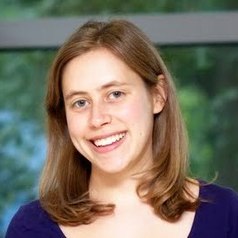
Jessi Streib
Associate Professor of Sociology, Duke University
Jessi Streib is an Associate Professor of Sociology. She is the author of The Accidental Equalizer: How Luck Determines Pay After College.
Less ![]()
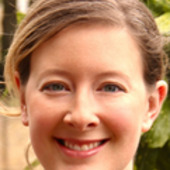
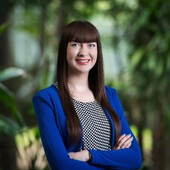
Jessica Bayes
Postdoctoral Research Fellow at the National Centre for Naturopathic Medicine, Southern Cross University
Less ![]()
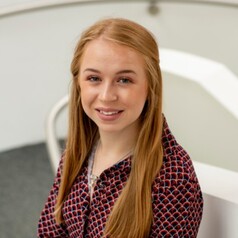
Jessica Boxall
Public Health & Nutrition Research Fellow, University of Southampton
I have recently completed my Master's in Public Health & Nutrition, and now work as a Research Fellow on a global health study investigating the impact of climate change on food security and health in Ghana. Prior to this, I did my Bachelor's (Hons) in Biomedical Sciences.
Less ![]()

Jessica Chapman
Leverhulme Trust Doctoral Scholar, Interdisciplinary PhD Candidate in Soil Carbon, University of East Anglia
Less ![]()

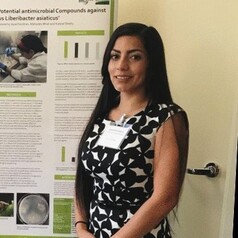
Jessica Dominguez
PhD Candidate in Agroecology, Florida International University
Jessica Dominguez obtained her Bachelor of Science in Biology from Florida International University in 2013. Soon after, she became a teacher at Academy for International Education Charter School where she taught middle school Math and science for 3 years, and during which time she earned her Professional Educator’s Certificate. In the summer of 2017, she began her Master of Science in Environmental Studies under professors Dr. Kateel Shetty, Dr. Krishnaswamy Jayachandran and Dr. Mahadev Bhat. Jessica completed her Master’s degree in Fall of 2019 and began her PhD in Spring of 2020. Jessica’s research (for both Master’s and PhD) is focused on the citrus greening disease, which is a deadly bacterial disease that affects all species of citrus. Jessica hopes to find effective antimicrobial compounds derived from natural sources (plants and/or microorganisms) to provide novel and sustainable treatment options for this devastating disease.
Less ![]()
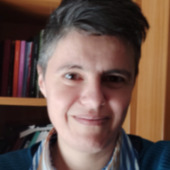
Jessica Falconi
Assistant Researcher, Centre for African and Development Studies, Universidade de Lisboa
Less ![]()
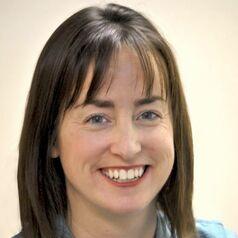
Jessica Faul
Research Associate Professor of Epidemiology, University of Michigan
Dr. Faul’s scholarly interests are at the intersection of epidemiology, biodemography, and aging. She is currently collaborating on a grant to identify gene-by-environment interactions and their influence on later life cognitive decline and is co-leading a study to characterize disparities in Alzheimer’s disease risk through analysis of polygenic risk and other epidemiologic factors. She is a co-investigator on the Health and Retirement Study and Harmonized Cognitive Assessment Protocol and has led the development of a workshop to train social scientists on the use of genomic data.
Less ![]()
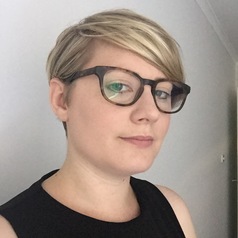
Jessica Ford
Early Career Researcher in Television, Gender, Film and Media Studies, UNSW Australia
Jessica Ford is an early career researcher, tutor and casual lecturer at the School of the Arts & Media, UNSW. Jessica is also the Co-Founder of the Sydney Screen Studies Network. She lectures and tutors in film studies, media studies and gender studies and has published essays on Buffy the Vampire Slayer, Community and Girls. Her research interests lie in contemporary American postnetwork television and television histories with a focus on gender and feminism.
Less ![]()
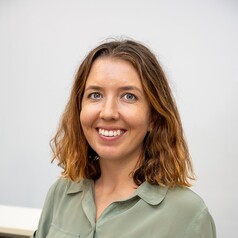
Jessica Geraghty
Senior Associate, Grattan Institute
Jessica is a Senior Associate in Grattan Institute’s Health Policy program. She previously worked at the Reserve Bank of Australia in various roles within the Economic Analysis, Payments Policy and Financial Markets departments.
Jessica holds a Master of International Economic Policy from Sciences Po and a Master of Science in Economics from the Stockholm School of Economics.
Less ![]()
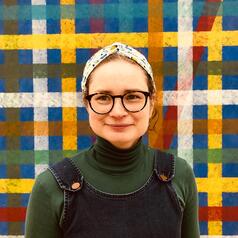
Jessica Hagen-Zanker
Senior Research Fellow, Overseas Development Institute
Jessica Hagen-Zanker is a Senior Research Fellow leading ODI’s migration research. Her research focuses on migration and development, migration decision-making, the links between migration and social protection, the humanitarian-development nexus as well as the analysis of social protection programmes and policies.
Jessica has designed and delivered numerous household surveys and has extensive mixed methods data collection experience in South Asia, Sub-Saharan Africa and the Middle East, as well as expertise in systematic literature reviews. Jessica has advised numerous governments and international organisations and has led policy analysis and contributed to policy dialogue in high-, middle- and low-income countries, including the UK, India, Jordan and Nepal.
Jessica holds a PhD in Public Policy from Maastricht University. She is also a Global Fellow at the Peace Research Institute Oslo (PRIO).
Less ![]()
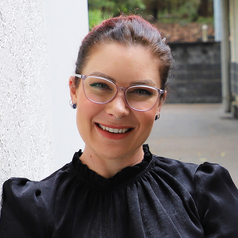
Jessica Harris
Lecturer Department of Accounting, Finance and Economics, Griffith University
Jess is a proud Darkinjung woman who works as a Research Fellow and lecturer at Griffith University. Jess offers comprehensive experience working with multiple stakeholders within local and State governments and NGOs. She is a behavioural scientist with extensive experience delivering change on several social issues. Her current work focuses on designing, implementing, and evaluating campaigns across various social problems, focusing on health and well-being and environmental contexts. She uses quantitative and qualitative research to co-create, build, and engage with stakeholders. She has led projects to increase breakfast consumption for workplace institutions. She has managed projects for local councils that focus on koala and domestic dog interactions, with the program successfully decreasing koala mortalities by 40% (Leave It). Her work now focuses on health and wellbeing in both the Indigenous and Institutional space.
Less ![]()

Jessica Heim
PhD researcher, University of Southern Queensland
Jessica Heim is currently undertaking PhD studies on light pollution, megaconstellations, and ethics.
Less ![]()

Jessica Hines
Visiting Assistant Professor of English, Whitman College
I am a professor of medieval literature and culture at Whitman College, specializing in the study of religion and gender and sexuality. My public-facing work has been published by Ploughshares, and my academic work has appeared in Exemplaria, the Journal of Medieval & Early Modern Studies, and Religion & Literature, among other venues.
Less ![]()
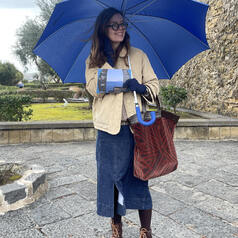
Jessica Hughes
Senior Lecturer in Classical Studies, The Open University
Jessica Hughes is Senior Lecturer in Classical Studies at The Open University. Her research focuses on the cultural and religious history of the southern Italian region of Campania, especially the area around Vesuvius and the Campi Flegrei. She is interested in how the traces of Greco-Roman antiquity co-exist and intertwine with other elements of local history and geology, particularly the material culture and practices of vernacular Catholicism. In 2024 she has a British Academy/Leverhulme Senior Research Fellowship - during this year, she is writing a book about the Catholic Shrine of Our Lady of the Rosary in the modern town of Pompeii, and its evolving relationship with the neighbouring archaeological excavations.
Less ![]()
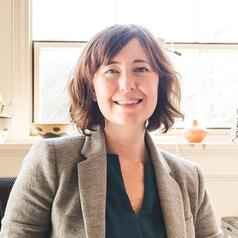
Jessica Jones-Smith
Associate Professor of Health Systems and Population Health, Epidemiology, University of Washington
Dr. Jessica Jones-Smith investigates socioeconomic causes and correlates of obesity risk in both high- and low/middle-income countries. Past and current research pertains to income- and ethnicity-based health disparities in obesity; early life risk factors for obesity; and the nutrition transition and increasing obesity prevalence in low- and middle-income countries.
Less ![]()

Jessica Kean
Lecturer in Gender and Cultural Studies, University of Sydney
I am lecturer in Gender and Cultural Studies at the University of Sydney, specialising in gender, sexuality and intimacy. In my work with the Boys Studies research group I explore the relationship between boys and feminism (learn more at https://boysresearch.org/)
Less ![]()

Jessica Kerr
Research Fellow, Adolescent Population Health and Obesity Epidemiology, Murdoch Children's Research Institute
Less ![]()

Jessica Knapp
Lecturer in Ecology, Trinity College Dublin
Jessica Knapp is an ecologist interested in how our landscapes can best support biodiversity and ecosystem functions, particularly pollinators and pollination services.
Knapp completed her DPhil with Juliet Osborne at the University of Exeter before moving to Lund University, Sweden, where she worked as a Researcher. Now, at Trinity College in Dublin, Knapp works as an assistant professor in Ecology.
Impact-driven, Knapp enjoys transdisciplinary research, where her projects combine ecological and social sciences to understand the drivers and mitigators of biodiversity decline.
Less ![]()
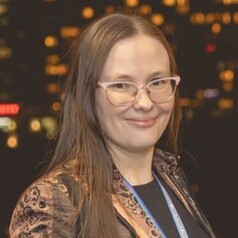
Jessica Korte
Senior Lecturer, School of Computer Science, Queensland University of Technology
Dr Jessica Korte advocates the best way to create good technology is to include end users in the design process. That technology can then improve lives and meet the real needs of the people who use it. When people who are disempowered or disabled by society establish what a technology should be, do, look like and behave then society as a whole will benefit from that technology. Jessica’s research currently serves to co-design sign language AI technologies with and for the Australian Deaf community.
Less ![]()

Jessica Kruk
Lecturer in Indonesian Studies and Linguistics, The University of Western Australia
Jess Kruk completed a PhD in Linguistics in 2015 and is currently working as a lecturer in Indonesian Studies and Linguistics at UWA, research focuses on identifying and addressing the exclusion of marginalised people from social, economic, and cultural life in the Asia Pacific. Her current projects include an investigation of the languages and identities of ethnic Chinese minorities in Indonesia, an exploration of how extreme metal musicians in the Asia Pacific write 'metal' lyrics using non-English languages, reimagining, and reinvigorating Indonesian language teaching and enhancing language communication to fight prejudice in the general public.
Less ![]()
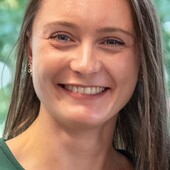
Jessica Large
Doctoral Researcher, Centre for Lifestyle Medicine and Behaviour (CLiMB), Loughborough University
Less ![]()
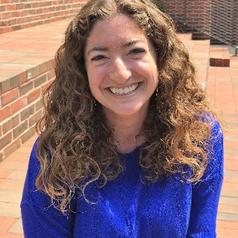
Jessica Lasky-Fink
Research Director of the People Lab, Harvard Kennedy School
Jessica Lasky-Fink is a Research Director of The People Lab. Much of her research focuses on using insights from behavioral science to improve the delivery of government services and programs, with a particular focus on the social safety net. Jessica holds a MA in International Economics and Development from Johns Hopkins SAIS, a BA in Political Science from the University of California, San Diego, and is currently a PhD Candidate in Public Policy at the University of California, Berkeley.
Less ![]()
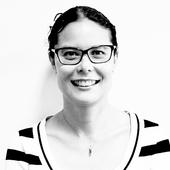
Jessica Lee
Senior Lecturer, School of Human Movement and Nutrition Sciences, The University of Queensland
Less ![]()

Jessica Lloyd May
PhD Candidate in History, University of Nottingham
Jessica Lloyd May is a doctoral researcher in History and Folklore at the University of Nottingham, specialising in the exploration of community, identity and history through folk customs. Her research particularly focuses on the Randwick Wap of Gloucestershire as a study of the complexity and value of folk customs as both a part of community life, and as a unique historical source. This study spans the documented history of the custom into present day, bringing historical narratives together with contemporary oral histories for a comprehensive view of a folk custom.
Less ![]()

Jessica Mannette
Research Assistant, Department of Psychology, Saint Mary’s University
Jessica is an Anthropologist and has worked with non-profit service organizations serving community members experiencing food insecurity in New Zealand, and people living with HIV in Nova Scotia. She has also collaborated on work surrounding testing for sexually-transmitted and blood-born infections in Atlantic Canada. She is currently a Research Assistant at Saint Mary's University, and a Project Manager at the Canadian Center for Vaccinology; a collaboration of IWK Health, Nova Scotia Health Authority, and Dalhousie University, in Kjipuktuk (Halifax), Miꞌkmaꞌki (Nova Scotia).
Less ![]()

Jessica McCoy
PhD Candidate, Department of Geography and Environmental Sciences, Northumbria University, Newcastle
Jessica, Newcastle born and bred, is a NERC-funded PhD candidate. They are studying at both Northumbria and Newcastle University under the ONEPlanet Doctoral Training Partnership. Jessica’s project focuses on the reconstruction of Oligocene to Miocene terrestrial ecosystems and climates on the northwest edge of Europe. By studying this, Jessica’s project aims to contribute to the understanding of the impact of oceanic dynamics on terrestrial palaeoenvironments.
Less ![]()
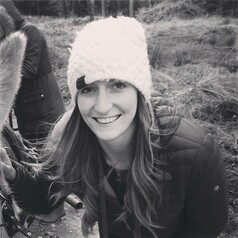
Jessica Mee
Senior Lecturer in Sport and Exercise Science, University of Worcester
Jessica is a Lecturer and Applied Sport Scientist who has research interests aligned to optimising athlete and occupational workers for competing and working in hot climates using novel, sustainable, accessible and effective strategies. She has a particular interest in understanding the additional challenges female endurance athletes may face associated with hormonal fluctuations during the menstrual cycle. Jessica is a British Association of Sport and Exercise Science (BASES) accredited Sport Scientist has a range of experiences working with and preparing national and international level athletes for competition.
Less ![]()

Jessica Penney
Assistant Professor, Department of Sociology, Toronto Metropolitan University
Less ![]()
- Market Data























